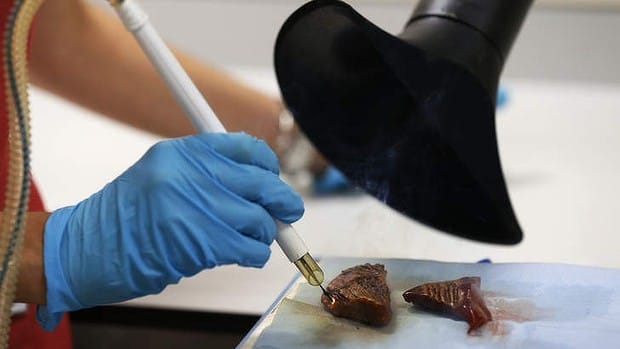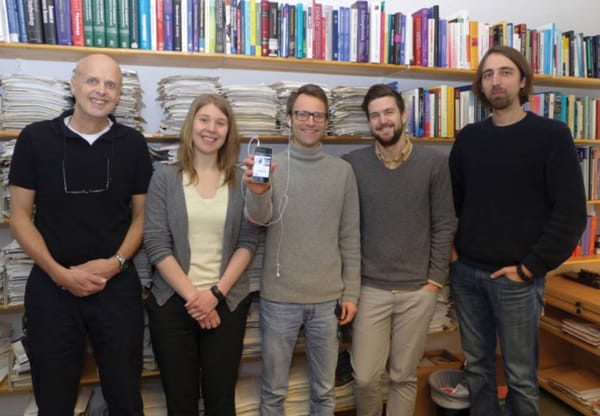A cut above the rest?
The results from Imperial’s iKnife are promising, but require further validation.

It sounds like something Apple would produce, not a team of Imperial researchers: the iKnife, the surgical device that can ‘sniff out’ cancer.
The iKnife (Intelligent Knife) has been doing the rounds this week, stirring up a fair amount of hype. It works almost in real time, has demonstrated a 100% success rate, and has sparked people’s imaginations into gear. But as exciting as the iKnife sounds, should we bust out the balloons and party poppers?
There’s not much more to say about the iKnife’s working that’s not already been covered. The iKnife relies on electrosurgery, the previously established use of electrically-heated scalpels to cauterize flesh as the surgeon cuts to minimize bleeding.
The iKnife is essentially an electroscalpel hooked up to a mass spectrometer via a suction pipe. During electrosurgery a stream of smoke from burnt biological matter is released and has to be ventilated. The iKnife sucks up some of this smoke, sending it for analysis, letting the surgeons know within seconds what they’re cutting into.
The recent results, published in Science Translational Medicine last week, revealed a 100% success rate in identification amongst 81 patients. The pilot study paves the way for larger trials of the device.
Right now surgeons play it safe. Without immediately knowing what they’re cutting away is normal or cancerous they cut slightly more than needed, though incidents of readmission occur when the tumour isn’t completely removed.
The iKnife is not without its difficulties, not least because of its £200,000 price tag. As the device relies on electrosurgery the iKnife is not suitable for all procedures, such as those of the gastrointestinal system, when it is less than ideal to slice open one’s colon.
"It's forcing you to burn tissues in areas where you wouldn't burn," said Dr Joseph Kim, a Californian gastrointestinal cancer surgeon speaking to the Los Angeles Times. "The type of operations I do, I'm not sure I'd want to change."
Likewise, the iKnife’s reliance on smoke means parts of the body that don’t evaporate quite so easily, such as bone and skin, pose more of a challenge.
As fantastic as the results are it is important to wait for the results of larger randomized trials before cracking open the champagne.
Mr Tim Underwood, a clinical scientist and surgeon at the University of Southampton, spoke to Cancer Research UK, saying: “[Whilst] this is a promising and innovative technology, we need to see results from much larger studies to confirm whether the data in this paper hold up.”
Imperial should rightly be proud for such an imaginative concept, but it is important to realize the iKnife still has a way to go. The concept and some of the proof are there: now we need to see the iKnife perform in other experiments and surgeries before we can think about bringing the device – cheaply – to hospitals.








